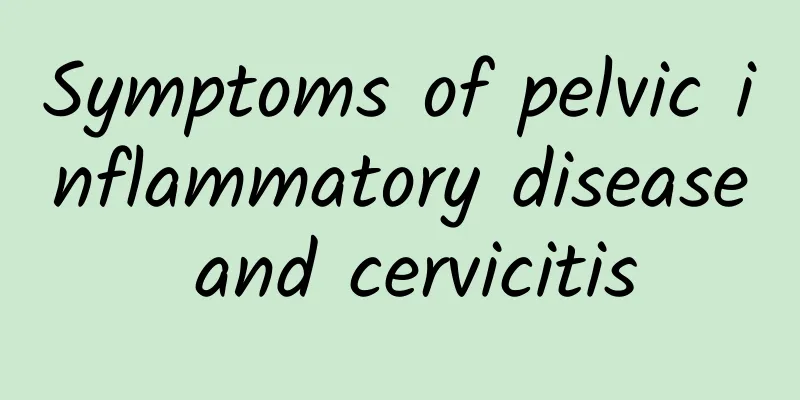What should you pay attention to in your diet when you have intrauterine fluid?

|
If there is uterine effusion, this situation should be caused by inflammatory infection. Usually, you should pay attention to the adjustment of your living and eating habits to avoid aggravating the symptoms of uterine effusion. If the amount of fluid is relatively large and there is pain, it means that there is an inflammatory infection, which needs to be treated with anti-inflammatory drugs in time, and you also need to pay attention to bed rest. When this happens, try to pay attention to a light diet and avoid eating spicy, irritating and cold foods. In addition, you should also reduce your fat intake. Uterine effusion is a common gynecological disease. Due to the sensitive location of uterine effusion, the disease has a very serious impact on the patient's health. Patients should not only actively cooperate with doctors for treatment, but also pay more attention to their daily diet and life to avoid aggravating the symptoms of uterine effusion due to improper diet. So what can't you eat if you have uterine effusion? Usually, there are two types of pelvic effusion: physiological and pathological. Physiological pelvic effusion can disappear naturally without treatment, and it often occurs after ovulation or early pregnancy. However, most pelvic effusions are pathological, caused by inflammation caused by chronic pelvic inflammatory exudate. If it is pathological, you need to follow the doctor's advice and early targeted treatment. Patients with uterine effusion should also pay special attention to their diet, try to eat a light diet, avoid spicy and irritating foods, and avoid aggravating the symptoms of uterine fluid. If the amount of fluid is relatively large and painful, it indicates that there is an inflammatory infection and needs to be treated with anti-inflammatory drugs in time, and you also need to pay attention to bed rest. 2. Avoid eating cold food <br/>Patients should avoid cold drinks, cold water and other cold foods. Since these foods are relatively cold, they can easily irritate the stomach and intestines, making the food difficult to digest, so they are not suitable for patients with intrauterine effusion. And the diet should be light and less salty. |
<<: What are the dangers of uterine effusion?
>>: What does dysfunctional uterine bleeding mean and what causes it?
Recommend
Frequent vaginal douching may increase the risk of ectopic pregnancy
The latest British gynecological research shows t...
Eat more colorful peppers and semi-vegetarian dishes to prevent chronic diseases during the Spring Festival
When you have a reunion dinner during the Chinese...
Several symptoms of lichen vulvar leukoplakia
There are many types of vulvar leukoplakia, and l...
How to improve abnormal leucorrhea
Abnormal vaginal discharge may be related to gyne...
What causes dysmenorrhea that women should know
In real life, many female friends feel abdominal ...
A 53-year-old woman has sex 4 times a month for many years, and her health indicators are enviable
There is a 53-year-old lady, her name is Ms. Lin....
What should I do if I have uterine fibroids? How should I treat uterine fibroids?
In addition to menstrual abnormalities, if women ...
Is pelvic peritonitis difficult to cure?
When it comes to pelvic peritonitis, I believe ma...
Talk about the five major factors to prevent cervical erosion from becoming cancerous
Patients with cervical erosion all know that the ...
How many days can menstruation be delayed
Irregular menstruation is a common gynecological ...
Amber An: To develop sexy legs
Clerk lines and mermaid lines have become a trend...
There are many symptoms of Trichomonas vaginitis in the vagina
There are many symptoms of trichomoniasis in the ...
Can I take birth control pills more than a month after ectopic pregnancy surgery?
Dear female friends, the recovery period after ec...
Don’t be afraid of getting fat when eating hot pot~ Choose the soup base and ingredients, and don’t eat fat with 4 principles
The temperature has dropped suddenly, and it is t...
Beware of cervical erosion if you have sex too early. Treatment of cervical erosion
In the early stage of cervical erosion, patients ...









